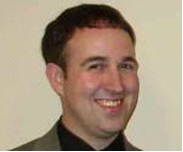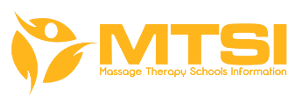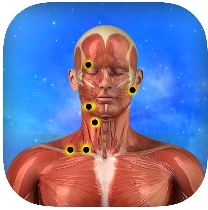
I am a sole practitioner in Portland, Oregon. At the moment it is just me, but in the past I have worked with several other practitioners in various clinical settings ranging from Chiropractic clinics to multi-disciplined physical therapy clinics. For the past 16 years my focus has always been that of pain relief and injury recovery. I see clients that are amateur and professional athletes as well as those who have been injured on the job and in motor vehicle accidents.
2) Tell us why you chose to go into massage and at what point in your life did you decide to do so? What were you doing at the time? Where did you first hear about the massage career? What factors influenced your decision? What were you looking to get out of this decision?
In 1997 I decided to drop out of the civil engineering program at college because it felt like the wrong fit. I enjoyed the problem solving skills required and the design aspects, but realized that I would not really be doing anything to fulfilling and that I would most likely tire quickly of the monotony. While I was taking a break from my studies, a good friend of mine kept insisting that I try looking into massage therapy as a career. He had been the recipient of my amateur massage skills because he had chronic neck stiffness and headaches.
I grew up having the same symptoms and my mother would always rub my neck and head to make the pain decrease. So from my past experience, I would intuitively know how I could help him as well. His persistence paid off when I finally went down to the college to check out the class schedule. It was then that the light went off in my head. I saw the sports medicine and rehabilitation classes offered and I realized that massage therapy was more than just the foo-foo spa stuff you always see in the movies. I saw that I could combine my problem solving skills with a functional understanding of how the body is designed! I saw the practical benefit to the community that would present a constant challenge and excitement to me as I would routinely see new clients.
3) What were some of your questions and concerns before further pursuing your massage therapy goals? Talk about concerns with school and the profession itself.
I wasn’t sure how difficult it would be to build up my presence in the local community. I knew before I even started attending that I would never want to work for someone else in the long run. I realized that at first I might need to work for a clinic to develop my skill set and get some experience, but this was not going to be my ultimate goal.
4) What is your specialty and what are the top three contributing factors to your success today?
My specialty is most definitely pain relief and rehabilitation from acute and chronic injuries. My success can be summed up with my desire to help people, my drive to be the best I can, and to give every single person the same treatment I would expect and demand. It is not easy to be a sole practitioner at times, but whether I succeed or fail is completely dependent on me and not someone else. It takes time to develop the skills needed, but the desire to help ones is always felt and appreciated by the public. Obviously this is my profession and money is needed to survive and prosper, but this is never my primary concern nor focus.
5) What do you like about your specialty? What do you like about what you do in general as a career? Why?
I like constantly meeting and helping new people. I know many therapists prefer a small loyal group of clients that constantly get routine care, but this has never been my desire. I like to face new challenges and share the gift of massage with as many people as my hands will allow. The best compliment for me is when I get a referral from a client I helped a long time ago, but they will always remember me as the guy that helped them. They in turn send me their friends and family for the same pain relief and rehab that I provided for them.
6) What do you not like about what you do? Why?
I definitely do not like doing paperwork and being on the phone so much. Since I do so much insurance billing I am constantly needing to talk to insurance adjusters, doctors and lawyers about my clients treatment program. I figure though that this helps save my hands from doing too much and ending my career prematurely.
7) f there were three things you could change about your work or the industry as a whole what would they be? Why would you change them? What would you change them to?
I think we need national standards like most other healthcare professional so that we can have reciprocity across all states. I also feel we need to either increase the educational standards across all states (except for New York) and/or have a two tiered licensing system so that those who would like to do the orthopedic end of massage/manual therapy should get more of a solid education. Maybe even having a one year residency program to ensure that those entering this field have the skills needed to avoid further injury to the client seeking pain relief. The colleges also need to be better regulated along with the instructors so that its not just a matter of hours spent sitting in a chair, but quality time with competency exams. This would also carry over for continuing education needing to be better regulated.
8) How long do you plan to practice and what do you plan to do after?
After 16 years it feels like I can easily do another 16 without much difficulty. I would hope after this I would go into partial retirement with possibly teaching part-time at one of the local colleges.
9) Do you currently have another job or business whether full time or part time? Tell us a bit more about it and how you are able to juggle that with your massage career?
I am a full time massage therapist who averages 35 hours a week.
10) What are some mistakes you made in your career pursuit that you’d like to warn other students about so they can learn from your experience and avoid it?
I would highly recommend taking some business class to avoid some of the pitfalls that I and some of my associates have found themselves in. Understanding contracts and employment law is essential so that you do not find yourself in a compromising situation with laws and taxation.
11) What would you advice someone who is looking at massage therapy schools? What do you recommend they look for and how? How do you recommend they determine whether the school is the right one for them?
Look for colleges that are providing a solid education and not just the basics to pass any given state requirements. Look at who the instructors are and their education background. If this is going to be your career, you should not worry about spending a little more time and money to receive a quality education. It will most definitely pay for itself in the end.
12) What do you recommend for someone who wants to go to massage school but cannot afford it?
Get a student loan and work a part-time job to pay it off after graduation. It will take some time to build up the clientele that would be sufficient to pay for your daily needs and your school debt. It would also be important to have some money in saving since it requires money to make money…It has been recommended by CPAs that one would have at least a year’s wages in savings before starting your own business.
13) What are your three biggest points of advice for an aspiring massage therapist today? What should they do/not do? What should they think about and consider?
Make sure you are a people person. If you have difficulty communicating, being self motivated or lack self esteem, this is not the career choice for you. Of all the therapists I see failing, they were lacking in one of those areas.
14) Any open thoughts / comments – anything else that you’d like to share about yourself, the massage industry, profession, future, etc? If nothing, make one prediction for the future of massage?
Prediction: Massage therapy education will steadily become nationally recognized and will most likely be a degree program across all the states.
15) What is your passion outside of massage? What are your hobbies and interests which you pursue when you are not working? Tell us why you enjoy what you enjoy.
My passion is helping and educating the public. I spend a lot of my free time volunteering at my church and giving public discourses on various topics. Since I still love design and construction I also spend a lot of my free time remodeling our house and helping friends and family with their projects.
Jamin D. Rak is a Licensed Massage Therapist. He can be reached on his website at: www.jaminraklmt.com.








Leave a Reply